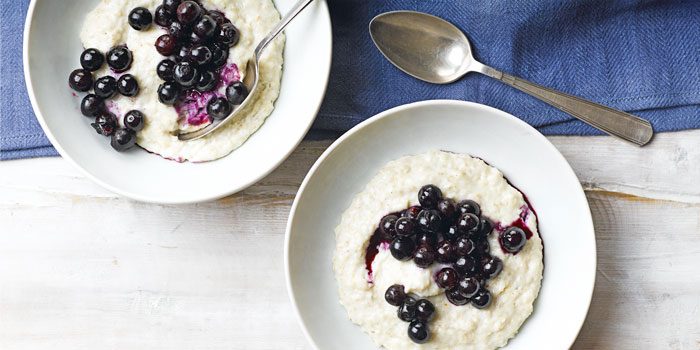
Controlling blood sugar is the main goal of a diabetic lifestyle. This can be achieved through diet, exercise, and weight management. Insulin and oral medications can be used to control blood sugar. For insulin control, you should eat at least three small meals per day. Avoid empty calories such as soda and fast foods, which can spike blood glucose. This article will explain what these simple changes can do for your health.
Diabetes diets are high in fat and can increase blood glucose levels. Your glucose level will increase if you're obese. In addition, your risk for heart disease and cancer is higher when you are overweight. Eating a balanced diet, rich in fiber, low in fat, sodium, and cholesterol, and being physically active are also important parts of a diabetic lifestyle. Also, limit your intake of sweets and alcohol.

There are many different ways to get enough proteins in your diet. Meat, fish, and chicken are rich in high-quality protein. Vegetarians may also enjoy soy-based tempeh and tofu, along with beans, legumes, and nuts. For a healthy diet, it is important to eat a variety of colors. Even if your diet doesn't include meat or dairy products, it is still important to consume a variety of protein-rich foods.
Healthy lifestyles include a diabetic diet. A good diet is crucial for people with diabetes. They are more likely to get heart disease and stroke. In addition to improving one's life expectancy, a healthy diet can lower the risks of several other major health conditions. Controlling your blood sugar levels can help reduce your chances of developing high blood pressure and cardiac disease. It will not negatively affect the person's efforts to control their disorder.
A diabetic diet will limit sitting time. This is important to control blood sugar levels. High blood pressure can make it difficult for someone to exercise. This is why they must be prescribed medication. The average person with diabetes should not exercise for more than 30 minutes a day. In addition, a diabetic diet should also limit alcohol intake. Also, it is important to eat more fruits or vegetables.

The ADA recommends a diet low in sugar and fat. This diet should have low amounts of saturated fats, and sugar. It is great to consume 100% fresh fruit juice. Instead of drinking "cocktails" or other sugary drinks, a diabetic should stick to water and eat with food. Sugar substitutes in soft drink are also not recommended for diabetics. Additionally, diabetics should reduce the intake of saturated fats.
FAQ
How many calories should I consume daily?
The exact amount varies depending on the person. An average person needs 2000-2500 calories per day. You need to determine how many calories you need based on age, gender, height, weight, activity level, and lifestyle.
Is Cardio Better Than Strength Training?
Both are equally excellent. Cardio is better if you are looking to build muscle faster.
Cardio burns more calories per minute than strength training and burns more fat.
Strength training is a great way to build muscle mass. However, it takes more effort than cardio.
What is the best exercise routine to build muscle?
There are two main things you must do when building muscle mass. These are the isolation exercises as well as compound movements. While compound movements focus on a single muscle, isolation exercises are focused on specific muscles.
You can improve your workouts by choosing exercises that challenge all major muscle groups. This ensures that you are always working hard during each session.
MyFitnessPal can help you keep track of your activity. It allows you to log everything from calories burned to weight lifting. You can also create custom meal plans based on your goals.
What's a good workout plan for 7 days?
A seven-day program should include three days of cardio training (running, biking and swimming), two strength exercise (using free weights or weight machines) and one flexibility/core work out (yoga, Pilates). It's essential to do each activity at least once a week. Each session should not take more than 45 mins.
Cardiovascular Exercise: Running/Biking/Swimming
The goal is to get in at least 60 minutes of cardio activities per week. You can aim for 75 minutes a week for best results. Cardio exercises can increase blood flow and stimulate the growth of muscles.
Strength Training
Cardio exercises target your heart and lungs. Strengthening your muscles and bones is the opposite. Strength training can help you burn calories even when you're not working out.
Flexibility & Core Workouts
You can strengthen your entire body by strengthening flexibility and core exercises. Both yoga and Pilates are excellent options.
Statistics
- Get free shipping and 25% off today. (healthline.com)
- Cardmembers earn 5% Back at Amazon.com with a Prime Credit Card. (amazon.com)
- 10 pounds in a month is likely during a lean bulking phase, especially for beginners. (muscleandstrength.com)
- Candidates and applicants must pass all four tests at 70% (minimum level) to graduate from Basic Deputy U.S. Marshal (BDUSM) Training. (usmarshals.gov)
- An estimated calorie range for moderately active adult males falls between 2,200 to 2,800 calories per day, depending on age. (eatright.org)
External Links
How To
How to Eat Well in Men's Food
Instead of eating three large meals a day, eat small meals. You will spend less time consuming food and your stomach. You'll be less likely to overeat later.
Avoid snacking prior to bed. If you snack late at night, you will wake up hungry and eat more the next day.
Instead, have a light snack an hour or two before sleep.
Avoid "snack attacks," which are when you reach for something to eat at any moment you feel hungry. This is particularly dangerous if your weight is already high.
Make sure that all of your meals are balanced. Don't skip breakfast. Make sure to eat healthy lunches and dinners.
If you're having trouble losing weight, cut back on calories.
Reduce your intake of alcohol, nicotine, and caffeine. Both can have a negative impact on how your body processes nutrients.
Get enough sleep. Sleep deprivation makes people crave junk food.
Exercise regularly. Exercise improves your mood, boosts energy levels, and burns extra calories.
Take care of yourself mentally. Stress can cause weight gain and overeating.
Relax. Meditation and yoga are great ways to relieve stress and anxiety.
Keep track of all the food you eat. Notify your family about everything you eat.
Remember to take supplements! Most men don't take enough vitamins and minerals to stay healthy.
Every day, take a multivitamin. A multivitamin every day can help to prevent certain key vitamins or minerals from becoming deficient.
Consider taking a vitamin D supplement. Vitamin C helps prevent scurvy and strengthens your immune system.
Your diet should include zinc. Impotence could be caused if you are deficient in zinc
Drink water. Your fluid intake should not exceed 1.5 liters per day (roughly 4 cups).
Limit salt. Sodium raises blood pressure and leads to heart disease.
Avoid trans fats. Trans fat has been linked with higher obesity, diabetes and heart disease rates.
Best male enhancement pills for 2018 - Best Male Enhancement Pills Reviews
There are many different types of male enhancement products available today. Some are effective, while others don't provide real results. This article aims to give you some information about the best male enhancement pills that actually work.